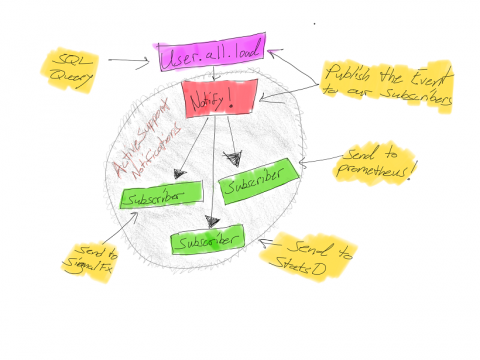Instrumenting Ruby on Rails with Prometheus
If you’re running a production application, you need metrics. There are great products out there that allow you to gain visibility into how your application is performing, give some nice graphs, and charge you for it. In the Rails community, this is commonly achieved by using NewRelic and Skylight. But for some of us, we achieve visibility by using Prometheus and Grafana that we build and host ourselves.











